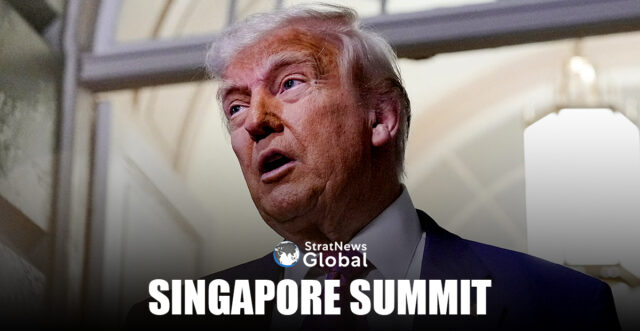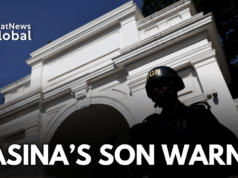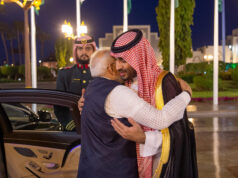Uncertainty surrounding the Trump administration’s security policies in Asia and Europe, the ongoing war in Ukraine, and renewed India-Pakistan tensions are expected to dominate the Asian premier defence summit in Singapore later this week.
The Shangri-La Dialogue runs from May 31 to June 1, attracting defence ministers, senior military and security officials, diplomats, analysts and weapons makers from around the world.
Analysts and regional diplomats say that while a speech by French President Emmanuel Macron on Friday night is the keynote address, all eyes will also be on U.S. Defence Secretary Pete Hegseth on Saturday when the Pentagon chief lays out his vision for the Trump administration’s defence policy for the region.
Hegseth will be closely watched by Asian allies not only for his approach towards them, but also for how the Trump administration views and articulates the threat from China’s military modernisation and ongoing tensions in disputed waters across East Asia.
Geopolitics And Security Focus
Analysts expect conversations around the competition between the U.S. and China, maritime conflicts such as the South China Sea, and defence partnerships to also feature prominently.
“Delegates will be eager to hear Defence Secretary Hegseth reiterate America’s commitment to regional security,” said Ian Storey, a regional security expert at Singapore’s ISEAS-Yusof Ishak Institute.
“But unlike in Europe, there’s no sense of foreboding that the U.S. will draw down its forces in the Indo-Pacific.”
China’s defence ministry has yet to announce whether Defence Minister Dong Jun will attend the dialogue and which other officials it might also send.
The ministry did not immediately respond to a Reuters’ request for comment.
This year’s Shangri-La Dialogue, which is organised annually by the London-headquartered International Institute for Strategic Studies, will also include a special session by Malaysian Prime Minister Anwar Ibrahim, who has sought to balance the country’s economic interests with its relationships with both China and the U.S.
Informal Meeting
Analysts and diplomats say that as a freewheeling event, the dialogue often features debates rarely seen in public elsewhere while also providing the opportunity for more discreet bilateral and multilateral talks.
But that informality means it is unlikely to involve any breakthroughs to end Russia’s invasion of Ukraine or resolve disputes between India and Pakistan, for example.
India and Pakistan are likely to be represented by senior military officials at the meeting, and not government ministers, diplomats have said, signalling that no breakthroughs are expected.
Collin Koh, a security scholar at Singapore’s S.
Rajaratnam School of International Studies noted that it may be more difficult to get consensus on difficult issues such as the South China Sea, which involves multiple Southeast Asian countries and China, as different countries prioritise their own interests.
He said that the recent imposition of tariffs on U.S. imports could push these countries to negotiate bilaterally rather than multilaterally, resulting in a more disunited approach and playing into China’s hands.
US-China Maritime Tensions
Ja Ian Chong, a political scientist at the National University of Singapore, said that it will also be important to observe how the U.S. responds to Chinese maritime actions that appear to have “pushed the envelope” in recent months.
These include the building of structures in the Yellow Sea, known in South Korea as the West Sea, as well as the holding of live-fire exercises on short notice in the Tasman Sea between Australia and New Zealand in February.
“If you have an overly strong response (from the U.S.), it could potentially be escalatory,” Chong said, adding that the current U.S. administration’s unpredictability also makes it difficult to see if it will follow through with any statements it makes.
On the other hand, Koh said that the U.S. is still committed to exercises that have been taking place over the past decade in the Indo-Pacific.
“I don’t see that much trepidation in Southeast Asia pertaining to the U.S. security commitment, even with the ongoing domestic issues taking place,” he said.
(With inputs from Reuters)





